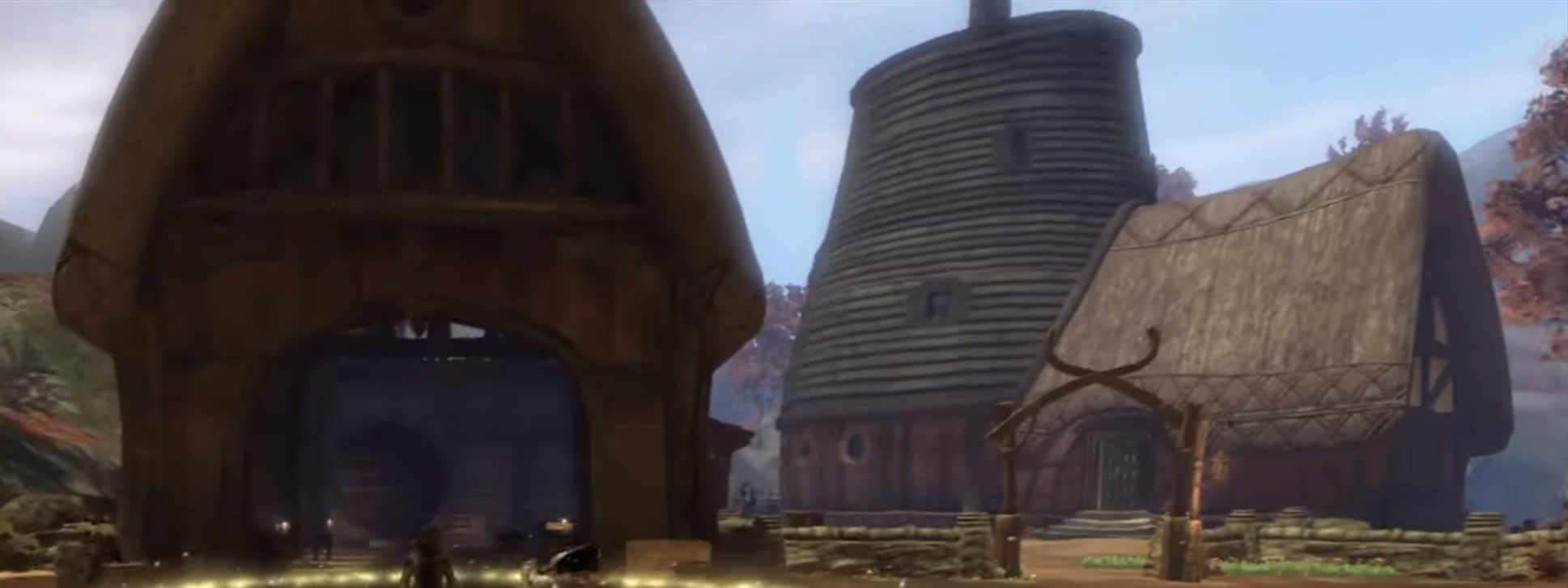There’s this one quest chain in Fable II that had me thrilled the first time I played through it. It starts in Brightwood towards the beginning of the game. You meet Giles, a former town guard turned farmer, whose farm has been beset by bandit attacks. The leader of the bandits murdered his wife in cold blood. Fearing for his son’s life, he sends his boy away until the bandits can be dealt with. Giles’ tale is one of the Fable series’ ethical decision points: do you help Giles and bring the bandits to justice, help the bandits, or walk away? If you’re me on my first playthrough, you’re all go, go, good team and of course you’re going to take Giles’ quest and get those bandits.
Say you do this, and the game’s timeline advances about a decade into the future. (You did, and it did and was going to anyway.) When you return to Brightwood, Giles’ farm has prospered. When you catch up with Giles, he thanks you again, but has another quest for you: helping him set his son Rupert up on a date. Take his portrait and find someone in town to go on a date with him.
Rupert is candid with you and tells you he hasn’t gotten along with any of the women his dad’s set him up with because he’s not interested in women. Same, Rupert, I gotchu. There are plenty of eligible bachelors in town, so finding one down to go on a date with Rupert doesn’t take long.
Rupert finally comes out to Giles once you bring back his suitor’s digits, and Giles is wholly accepting of this news, and is in fact all oh derp, I should’ve figured this one out. He’s happy for his son, and sad about him leaving home… but Rupert invites his dad to move into the city with him. Once they do, you can purchase the farm as an asset.
Seeing a coming-out quest in a video game for the first time was fantastic! My favorite part, though, was realizing how the scenario design had more to say on the topic. The Blind Date doesn’t become available unless you do the good deed in Brightwood initially. If instead of finishing the Cold Comfort Farmer quest and do its moral opposite, the Red Harvest quest, Giles dies by your hand and there’s no farm to come back to in a decade, and no gay kid who hates farming who’s trying to figure out how to tell his dad the truth. Helping Rupert come out to Giles is something only good characters get to do.
With no scenario where your evil character can come back and help Rupert come out, there’s no muddying of the waters around what the game is trying to say here. There’s no material for anti-gay organizations to say, “In this video game, your evil character can murder everyone in the forest, and then encourages a young man to pursue a homosexual lifestyle!” Good characters get to help Rupert come out because it’s also a good outcome.
That is a powerful statement implicit in the game’s scenario design. By denying any ambiguity about which moral paths within the larger story will lead to a coming out story, they’re showing even stronger support for gay individuals and the issues we face than if the design team had simply dropped Rupert’s story into the game the first place. It’s one thing to include queer characters in a game’s story, but to strongly position that inclusion as the outcome of good moral choices, in a game centered around moral choices, is even more important.
